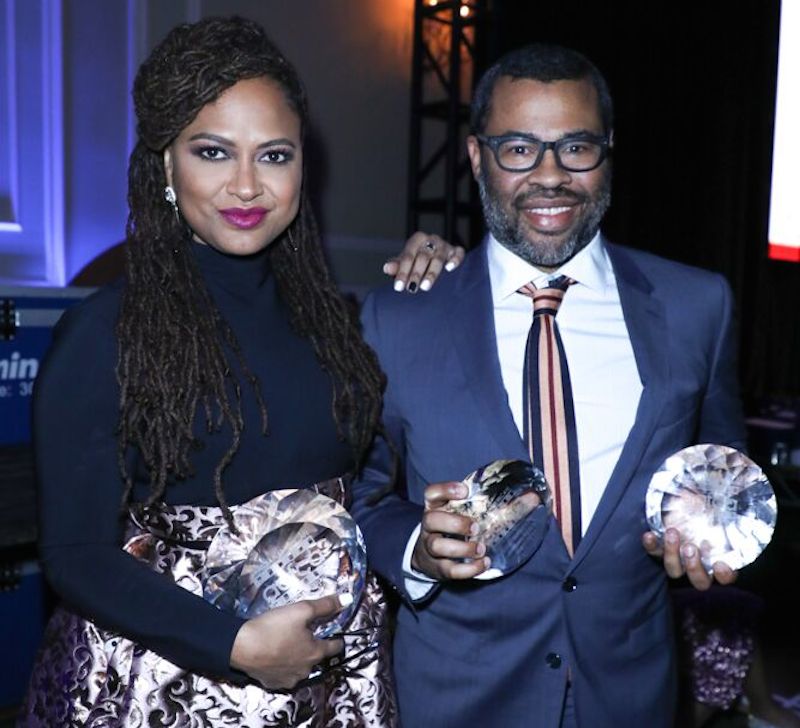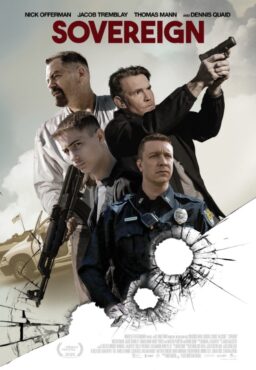At a time when examples of inclusivity are still few and far between during awards season, the African American Film Critics Association’s (“AAFCA”) annual awards gala is more crucial than ever. Its 11th installment will be held on Wednesday, January 22nd, and I had the privilege of interviewing AAFCA president Gil Robertson via e-mail prior to the festivities. I spoke to him about his esteemed career spanning over 20 years in entertainment journalism, the origins of his awards ceremony and the creation of AAFCA’s Roger Ebert Award, which has previously been presented to writers Justin Chang, Susan King, Manohla Dargis, Wesley Morris, Michael Phillips and Claudia Puig, and will be awarded this year to Richard Roeper.
Which year did you co-found AAFCA and what was the motivation for starting the organization?
The impetus for starting the African American Film Critics Association stemmed from the Founding members recognizing the need to build an organization that would amplify the enormous value that Black entertainment journalists contribute to success in the industry. AAFCA’s mission is two-prong in that we create pathways that support journalists seeking to grow their careers and for filmmakers as they seek to find an audience.
How has the organization grown since the beginning, and do you find that there is still a need for it?
When we first started out, AAFCA primarily focused on producing our tentpole program, the AAFCA Awards, which celebrates the best performances and films each year. Our purpose has evolved over the years and we now operate a year-round calendar producing programming nationwide that promotes a greater understanding of film and television’s impact to society.

What is your professional background?
I have spent my entire adult life working in media. My work as an entertainment journalist spans nearly 30 years, during which I’ve written over 50 national magazine covers and for newspapers like the Los Angeles Times, The Atlanta Journal Constitution, USA Today and others. I am also the editor of 3 successful anthologies that examine critical issues impacting the African American community. As an author I’ve written a children’s book and a self-help guide for aspiring journalists. I also owned a public relations company for over a decade that executed media campaigns for films, TV shows and several high-profile entertainers, athletes and creative and business executives.
When were the AAFCA Awards started, and tell me what you are the most excited about with the 11th edition approaching January 22nd?
Our first show was in December of 2009 at the Ebony Repertory Theater in LA. We’ve come a very long way since then. LOL! This year’s show is going to be great. I think AAFCA members made some smart decisions with the winners in our Performance and Top 10 categories. I am also excited about the number of Asian-themed films that we’re recognizing this year. South Korean director/screenwriter Bong Joon-ho won AAFCA’s Best Foreign Film for “Parasite” and Best Screenplay. Our Best Animated Film honors is going to “Abominable,” which is the first animated film featuring an Asian family released by a major Hollywood studio. I think it’s a very notable development to witness the continued emergence of Asian filmmakers and storylines in mainstream American cinema.
I see that Lil Rel is going to be the Master of Ceremonies. His career is really taking off and I am happy to see it because he has worked hard for it. He is from Chicago and I went to high school with his aunt, who was also naturally funny. His family members were solid pillars of the community whether involved in the church or in advocating for social justice issues. Why did you choose him to MC this year in particular?
I’ve been a fan of Lil Rel’s work for years and he’s been a great supporter of AAFCA. Lil Rel understands what AAFCA represents to the marketplace, particularly to Black people. He’s a rare breed of black celebrity who understands his power and takes action with it to endorse the things he believes in. AAFCA is massively proud that he is hosting the 11th edition of our show.
AAFCA’s awards do seem more inclusive than the Oscars and the Golden Globes, any comment?
You’re right. When you look at the list of our winners from any year, one of the things that stands out is the inclusivity of our winners. I believe it’s a reflection of our member’s understanding of the universal value of cinema, as well as their unbiased commitment to recognize the Best films and performances regardless of race or background.

Tell me about the Roger Ebert Award given by AAFCA.
It’s always surprised me that journalists are so seldom recognized for the value that we contribute to the industry on a multitude of levels. From delivering news and information to the masses that allows entertainment content to even exist, to introducing talented players whose careers we nurture and help grow–entertainment journalists are important. Mr. Ebert’s career provided a great example for what most entertainment journalists strive to achieve. He built a career grounded in integrity and excellence, as well as a deep commitment to shine light on emerging talent. We established the award because Mr. Ebert’s career is emblematic of the values that journalists strive for.
I have attended several AAFCA events over the years, and even recently joined as a member. One observation I have made is your humility in that you seem to put the organization and its members well-being above your personal ambitions. What are some of the things you have planned for AAFCA members to become more prominent in the world of cinema and film criticism?
It’s important to me that AAFCA provides opportunities that allow our members to gain the confidence and skill sets to grow their career. I’ve enjoyed a very solid and productive career as an entertainment journalist and so my goal for AAFCA has always been that it provides a gateway of opportunity for other journalists to do the same. Our annual calendar is filled with year-round programming that includes screening series in major markets across America, programming at major film festivals, plus opportunities to host TV segments on TCM, REVOLT and other networks. AAFCA also produces boot camps on college campuses throughout the year. We are committed to creating these opportunities because they create pathways that help our members in reaching their full potential.
Anything else you want to add?
AAFCA’s goal is to keep creating a lane of opportunity for film journalists and filmmakers to grow. We also plan to continue to educate the larger public with a greater understanding of the power and magic of entertainment content. We invite Roger Ebert.com readers to follow us socially at AAFCA on Instagram and TheAAFCA on Twitter.
For more information, visit the official sites of AAFCA and Gil Robertson.
Header photo caption: Previous AAFCA honorees Ava DuVernay and Jordan Peele. Courtesy of Gil Robertson.












